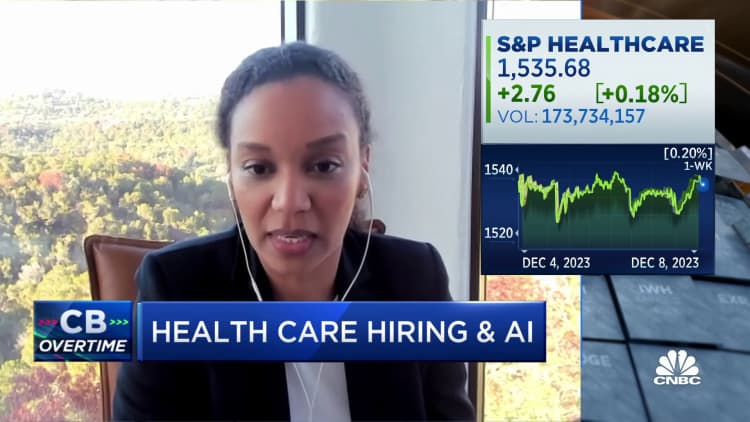DETROIT – Since the start of the pandemic in early 2020, U.S. automakers and dealers have seen record profits as demand outpaced supplies of new cars amid supply chain problems.
But with interest rates rising, inflation at record highs and recession fears looming, Wall Street is closely watching third-quarter earnings results and guidance for any signs consumer demand might be weakening.
“Auto sentiment is very poor. We get it. Higher rates, still high prices, low consumer confidence, a potential recession and European energy risk does not make autos a friendly place,” RBC Capital Markets analyst Joseph Spak wrote in an investor note last week.
Spak said third-quarter earnings “should mostly be fine,” with the focus being on company commentary and guidance revisions. He said 2023 estimates for the sector need to “move materially lower.”
RBC and other financial firms have signaled the auto industry’s supply chain issues could quickly shift to demand problems.
Profits for U.S. and European car companies are set to drop by half next year as weakening demand leads to an oversupply of vehicles, UBS analysts led by Patrick Hummel told investors last week.
He said the overall automotive sector in 2023 “is deteriorating fast so that demand destruction seems inevitable at a time when supply is improving.”
GM/Ford
On Oct. 10, Hummel also downgraded General Motors and Ford Motor, predicting it that it would take three to six months for the auto industry to end up in oversupply. He said that will “put an abrupt end” to the unprecedented pricing power and profit margins for the automakers in the past three years.
The investment firm downgraded Ford to “sell” from “neutral” and GM to “neutral” from “buy” – sending both stocks tumbling roughly 8% during intraday trading on Oct. 10.
The downgrades came weeks after Ford said parts shortages affected roughly 40,000 to 45,000 vehicles, primarily high-margin trucks and SUVs that haven’t been able to reach dealers. Ford also said at the time that it expects to book an extra $1 billion in unexpected supplier costs during the third quarter.
GM has not signaled such problems for the third quarter, but experienced similar issues during the second quarter that it was expecting to make up for during the second half of the year.
GM CEO Mary Barra this past week told Yahoo! Finance that the Detroit automaker is preparing for increased demand for its vehicles next year, but that it wants to be prepared “regardless of the environment” to continue investing in its electric vehicle plans.
GM is set to report third-quarter results before markets open Tuesday, followed by Ford a day later after the bell.
Before Detroit’s largest automakers report earnings next week, electric vehicle leader Tesla, which has a cult following among investors, is scheduled to report after markets close Wednesday.
Dealers
CarMax fueled Wall Street’s concerns last month after the used car dealer posted one of its biggest earnings misses ever. In its fiscal second quarter ending Aug. 31, same-store unit sales fell 8.3%, steeper than the 3.6% decline Wall Street expected.
Used car prices remain elevated, but Cox Automotive said wholesale prices for dealer auctions have declined for four consecutive months. That could signal consumers are fed up with the near-record prices.
Citing CarMax’s results, J.P. Morgan analyst Rajat Gupta said the sentiment for franchised dealers’ third-quarter earnings “is the most negative we have encountered since the pandemic.”
“The sector is not immune to ongoing macro challenges and we are dialing back our estimates for 2023 materially to reflect a mild recession and hitting a new normal by 2025,” Gupta said in an Oct. 6 investor note.
A potential bright spot for the industry is the low new car availability and sales. Even if there is an economic downturn, sales could still increase though profits would be expected to tighten.
Lithia Automotive on Wednesday reported its highest third-quarter revenue and earnings per share in company history, despite missing Wall Street’s top and bottom-line expectations.
Morgan Stanley analyst Adam Jonas said Lithia’s third quarter may be the last of the “really, really, really good” gross profit per unit quarter of this cycle.
“While [CarMax’s] weak fiscal 2Q results (reported a couple weeks back) set the tone for the used market, we believe [Lithia’s] 3Q miss should set the pattern for the franchise players,” he said in an investor note Wednesday.
Other major dealers scheduled to report third-quarter earnings include Group 1 Automotive on Oct. 26, followed by AutoNation, Asbury Automotive Group and Sonic Automotive on Oct. 27.
Auto suppliers
Looking to auto suppliers, which have experienced significant cost increases during the coronavirus pandemic, several Wall Street analysts expect continued growth this year, followed by single-digit growth, if not less, next year.
Suppliers are largely paid after they deliver parts or products to larger suppliers or automakers. Smaller suppliers that produce materials or parts for lager companies have particularly been under pressure due to lower volumes, increased costs and labor shortages.
Gary Silberg, KPMG’s global head of automotive, told CNBC that a significant number of suppliers are going back to the original equipment manufacturers asking for support.
“Not only just for them but for their suppliers. It’s a dance basically that everyone’s doing all the time,” Silberg said. “They don’t have a lot of leverage is the problem. It’s been a very, very tough 18 months” for smaller automotive suppliers.
A KPMG survey that included more than 100 automotive industry CEOs whose companies have annual revenues of over $500 million found 86% believe there will be a recession in next 12 months, and 60% said it will be mild and short.
Responses for the KPMG CEO Outlook survey were submitted from mid-July to late-August.
Deutsche Bank expects auto suppliers to report third-quarter results in-line with Wall Street’s expectations. Analyst Emmanuel Rosner said in a note to investors Wednesday that the firm favors suppliers over automakers into next year, but sees potential earnings downside risk from smaller suppliers such as American Axle & Manufacturing and Dana Inc.
– CNBC’s Michael Bloom contributed to this report.






